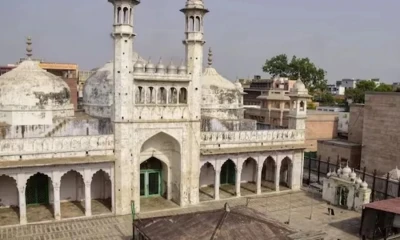Edited by Deepali Verma
The Allahabad High Court refused to give relief to the Anjuman Intezamia Masjid Committee on February 2, which had filed a petition against a Varanasi court order that permitted Hindu devotees to worship inside the sealed basement of the Gyanvapi mosque complex.
A single bench of Justice Rohit Ranjan Aggarwal issued an order to the Advocate General to maintain law and order within and outside the premises of Gyanvapi mosque. The next hearing of the case is due on February 6.
Previously, the mosque committee approached the Supreme Court challenging a district judge’s order that permitted the puja to be carried on in the southern cellar of Gyanvapi mosque. The mosque committee was then asked to approach the Allahabad High Court instead.
Over the course of the hearing, senior advocates SFA Naqvi and Puneet Gupta, representing the mosque committee, told the High Court that the Hindu side was in demand of one of the four cellars in which Vyas Ka Tehkhana (cellar) is located in the basement for worship. The Muslim side remarked that an application filed by the Hindu side was passed on January 17 when a District Magistrate was under appointment as a “receiver” of that portion of the mosque.
Advocate Vishnu Shankar Jain, while representing the Hindu side, stood in opposition of the mosque committee’s petition and said it had neither challenged the January 17 order nor the order on January 31 that permits the puja to be conducted in the sealed basement of the Gyanvapi mosque.
The High Court refused to give any relief and ruled that the mosque committee did not challenge the January 17 order and did not pause the district court’s decision to allow puja within the Gyanvapi mosque premises.
The High Court’s decision took place after four women petitioners moved the Supreme Court, while seeking excavation and a survey of the sealed section of the mosque. The plea was made in the Supreme Court after the Archaeological Survey of India (ASI) report, according to the Hindu side, revealed that a large Hindu temple existed prior to the construction of the Gyanvapi mosque.
A number of Hindu activists challenge that a temple existed earlier at the disputed Gyanvapi mosque site which was demolished in the 17th century on the orders of Mughal emperor Aurangzeb. Such claims are rejected by the Muslim side.

















